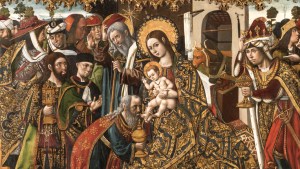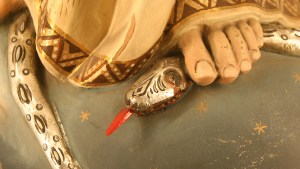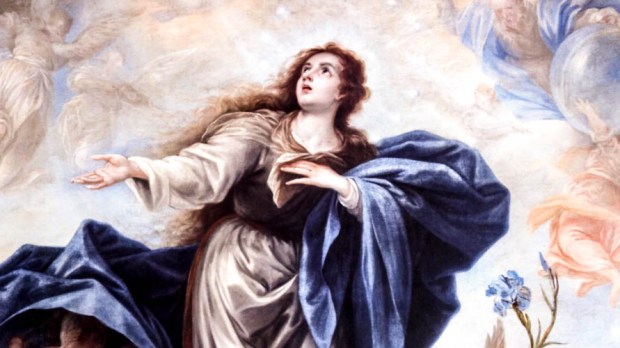When I first began to explore Catholicism, I was feeling pretty overwhelmed. The lady running the Catholic book store where I shopped for resources advised me to take one thing at a time — to take each new concept, doctrine, or devotion and sit with it. She encouraged me to just “chew on it a while” before I moved on to something else.
This came as quite a shock to me. I mean, I knew Catholics were big on Mary, but I didn’t know they thought she was sinless. It was at this point in my conversion process that I almost bolted. But I followed the bookstore lady’s advice and just sat with this for a while. And I read and prayed. This is what I learned.
1Sinless does not equal divine
2Immaculately conceived does not mean savior-less
When the Fathers and writers of the Church meditated on the fact that the most Blessed Virgin was, in the name and by order of God himself, proclaimed full of grace by the Angel Gabriel when he announced her most sublime dignity of Mother of God, they thought that this singular and solemn salutation, never heard before, showed that the Mother of God is the seat of all divine graces and is adorned with all gifts of the Holy Spirit. To them Mary is an almost infinite treasury, an inexhaustible abyss of these gifts, to such an extent that she was never subject to the curse and was, together with her Son, the only partaker of perpetual benediction. Hence she was worthy to hear Elizabeth, inspired by the Holy Spirit, exclaim: “Blessed are you among women, and blessed is the fruit of your womb.”
3The Old Testament fulfilled

Read more:
If you want to love Mary more, find her in the Old Testament (this book will guide you)
4Biblical teaching
The Immaculate Conception is biblical. When the Angel Gabriel greeted Mary as “full of grace,” he meant it. Catholic Answers explains it this way … The grace given to Mary is at once permanent and of a unique kind. Kecharitomene [the Greek word for Gabriel’s greeting to Mary] is a perfect passive participle of charitoo, meaning “to fill or endow with grace.” Since this term is in the perfect tense, it indicates that Mary was graced in the past but with continuing effects in the present. So, the grace Mary enjoyed was not a result of the angel’s visit. In fact, Catholics hold, it extended over the whole of her life, from conception onward. She was in a state of sanctifying grace from the first moment of her existence.
The Immaculate Conception is indeed a challenging dogma, especially without all the facts and a full understanding of the teaching. But once I came to realize the depth and beauty of the Immaculate Conception, it made perfect sense – just like all of God’s plans.

Read more:
The surprising day when the devil himself praised Mary’s Immaculate Conception

